In October 2021, I decided to learn how to swim. Just like any new skill, the process of learning to swim was not as easy in the beginning, but I kept at it day in and day out. I kept showing up at the swimming pool, getting tips from fellow swimmers, and lifeguards at the YMCA, watching hours of Youtube swimming videos, reading books, watching documentaries and most importantly, trusting the process. I am not where I want to be swimming-wise but am not where I used to be.
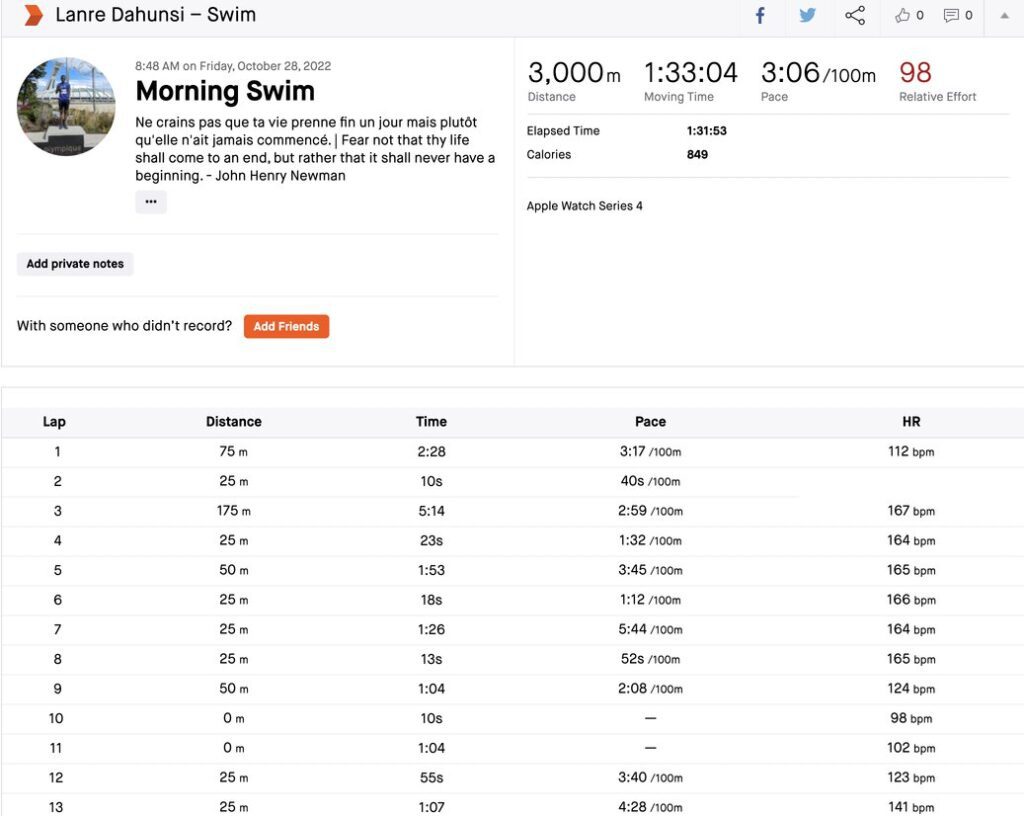
I love swimming, and I have dedicated 12-14 hours per week to training to become a better swimmer. Since October 2021, I have swum at least 7 hrs in the beginning to 14 hours weekly of recent. I find swimming to be meditative, relaxing and flow-inducing. I have also set a goal to participate in a triathlon (Run, Swim and Cycle) in 2023 hence the need to train consistently. Learning to swim is one of the most consistent activity have done this year, I try to swim twice daily, first thing in the morning and the evening.
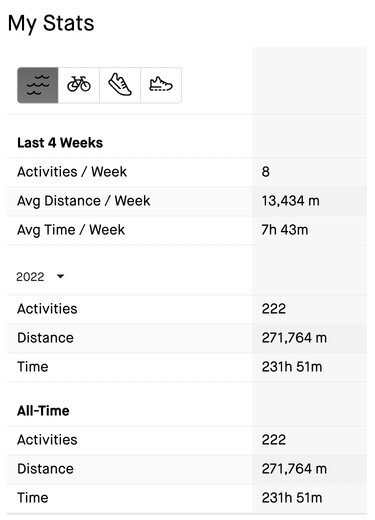
Here is a progress report on my swimming adventure. Like any skill, you start up as a beginner, and with practice and consistency, you get better with time.
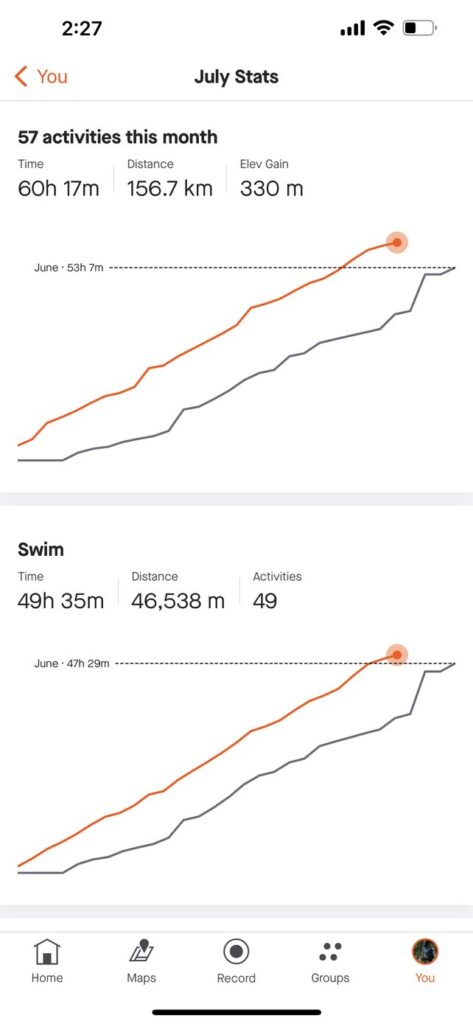
Here are some strategies that have kept me consistent with swimming daily.
Start with Why
In October 2021, I set a goal for myself to participate in my first Triathlon by December 2023. I have run multiple marathons, I started cycling, and swimming was the last piece of the puzzle. The triathlon challenge gives me the needed motivation to keep training, especially on days that I don’t feel like it.
He who has a why to live for can bear almost any how. – Friedrich Nietzsche
Track your Progress
I did not start documenting my progress until around May 2022, after having consistently trained daily for about six months. Tracking my progress using the Strava app has increased my consistency and the zeal to keep pushing daily.
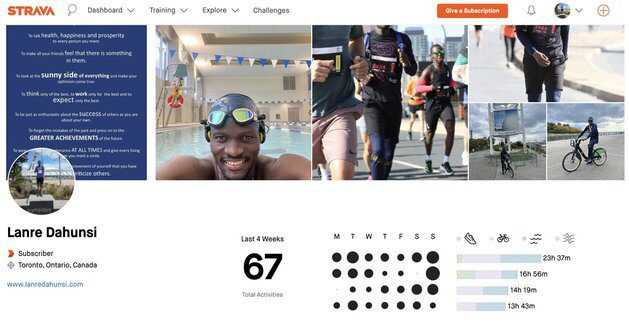
I use Strava (a social network for tracking physical exercise) to track my swimming laps. I share my progress daily on the app, and it helps me keep track of my laps, time, and pace of swimming. Tracking my progress makes me look forward to a goal to reach and stretch towards daily. I started out poorly as usual but with time, have improved considerably.
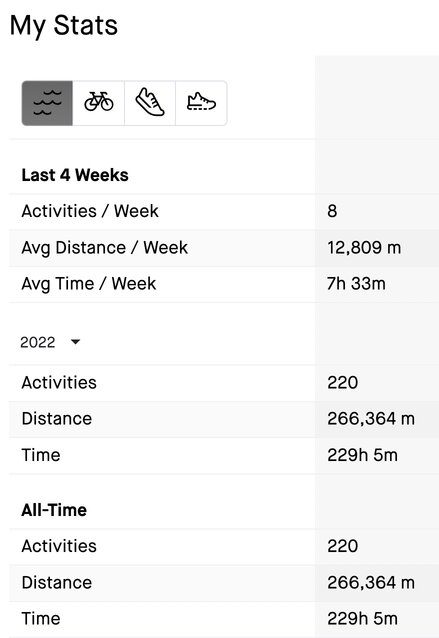
Gamify your training
One other strategy that has made me swim consistently in the past 365 days is the gamification of my training. I swim with the Fini Underwater Bone Conduction MP3 Player, which allows me to listen to my favourite music, study french, listen to podcasts and get in the grove while swimming. They are many days that I don’t want to swim but when I remember that I need to listen to french and listen to some uplifting music; I get the motivation to go in for some laps.
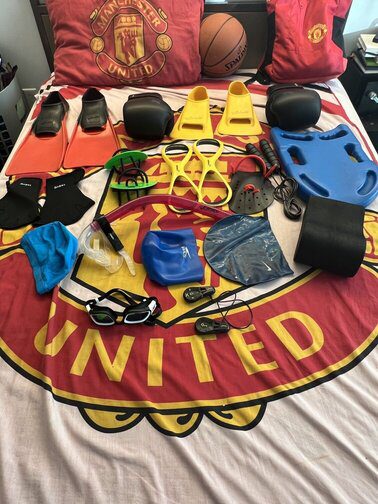
Practice.Practice.Practice
I have run 5 marathons so far in 2022, and every time that I travel to participate in these marathons, I make sure that where I am staying has a swimming pool or is close to a YMCA. After running the marathon, I usually stay in the city for a week. Apart from exploring the city, one of the things that do consistently is to get some reps and laps in the pool.
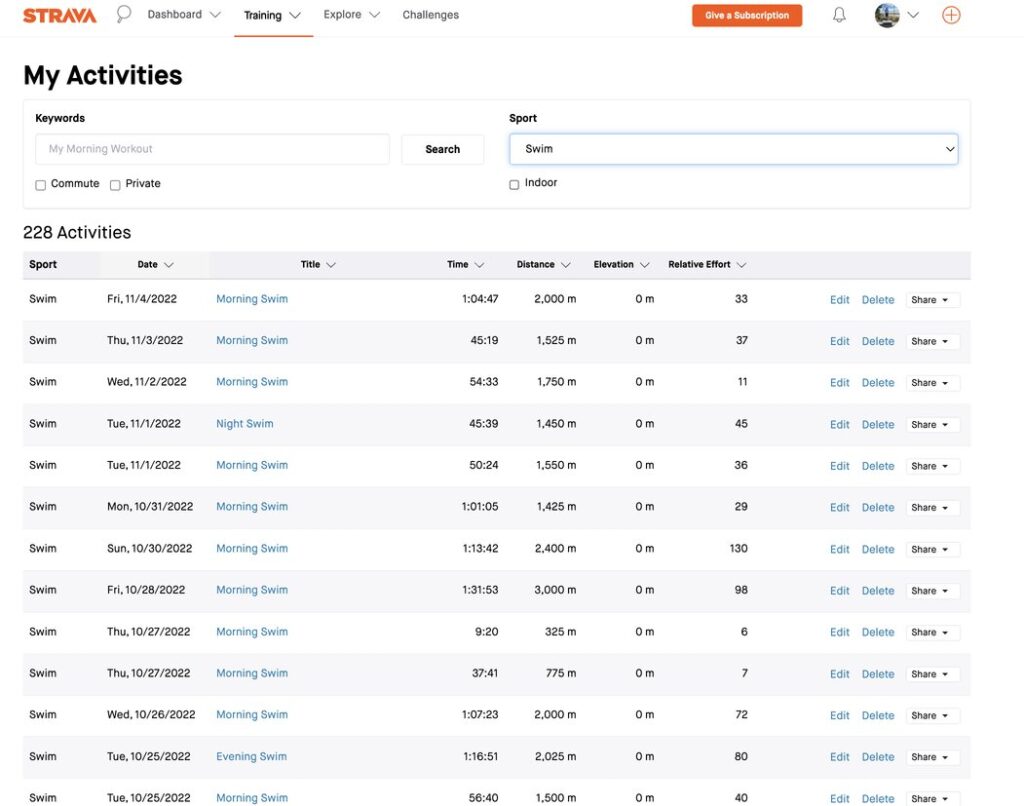
Study Role Models
Success they say leaves clues and studying the greats is one of the surefire ways of cracking any skillset. In my quest to become a better swimmer: I watch(ed) multiple youtube videos, and read swimming books & Biographies (Why We Swim by Bonnie Tsui, No Limits: The Will to Succeed by Micheal Phelps). As former American competitive swimmer and the most decorated Olympian of all time (28 medals), Micheal Phelps said in his book, No Limits: The Will to Succeed:
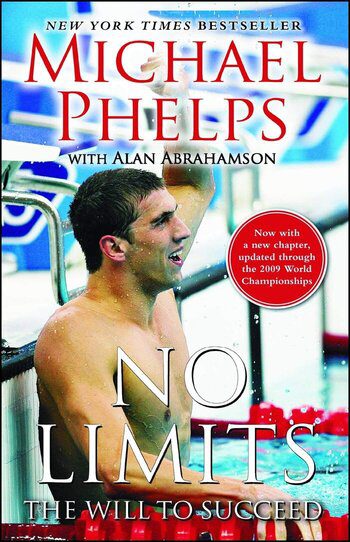
In 2006, at the Pan Pacific Swimming Championships, one of the major meets of that year, he set a meet record in winning the 50 free. Cullen, Jason, Neil Walker, and I won the 400 free relay and set a world record, which made Cullen the first African-American swimmer to hold or share a long-course record. Making the Beijing team meant he was the third African-American to make the U.S. Olympic swim team, after Anthony Ervin and Maritza Correia. Cullen was a big part of a USA Swimming program called “Make a Splash,” which is based on chilling statistics:
Nearly six of every ten black Americans can’t swim and African-American kids ages five to fourteen are nearly three times as likely to die of drowning as their white counterparts. One of the reasons that’s cited for the dismal figures on minority swimmers
Hispanic Americans are also far more likely to drown at a young age—is a lack of role models. His message is obvious, so simple, so common-sense: Hey, black kids can swim, too.
Phelps is right about the lack of role models. I am usually one of the few minorities that I see in every pool that I swim in, but I try not to let the lack of role models deter me from swimming day in and day out. I have tried to study the greats by watching documentaries, reading books and youtube videos – this has made all the difference.
I am not there yet with my swimming skills; there is still a lot to work on. But If I can do it with dedication, consistency and disciple- You can do it too.
All the best in your quest to get better. Don’t Settle: Live with Passion/.



Comments are closed.